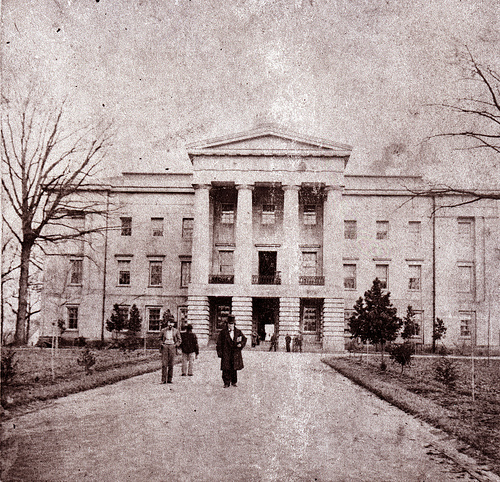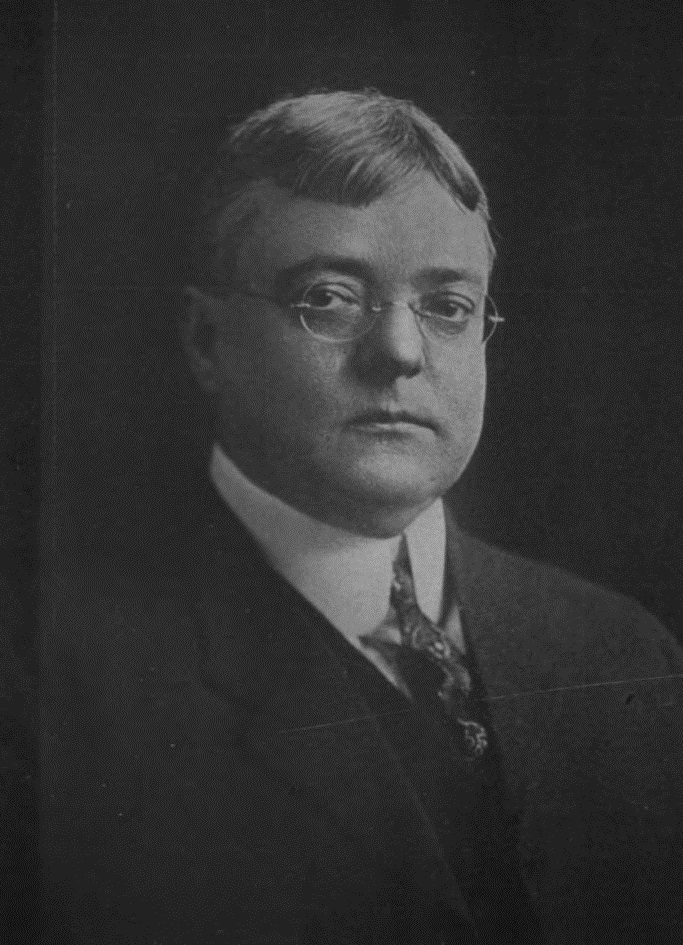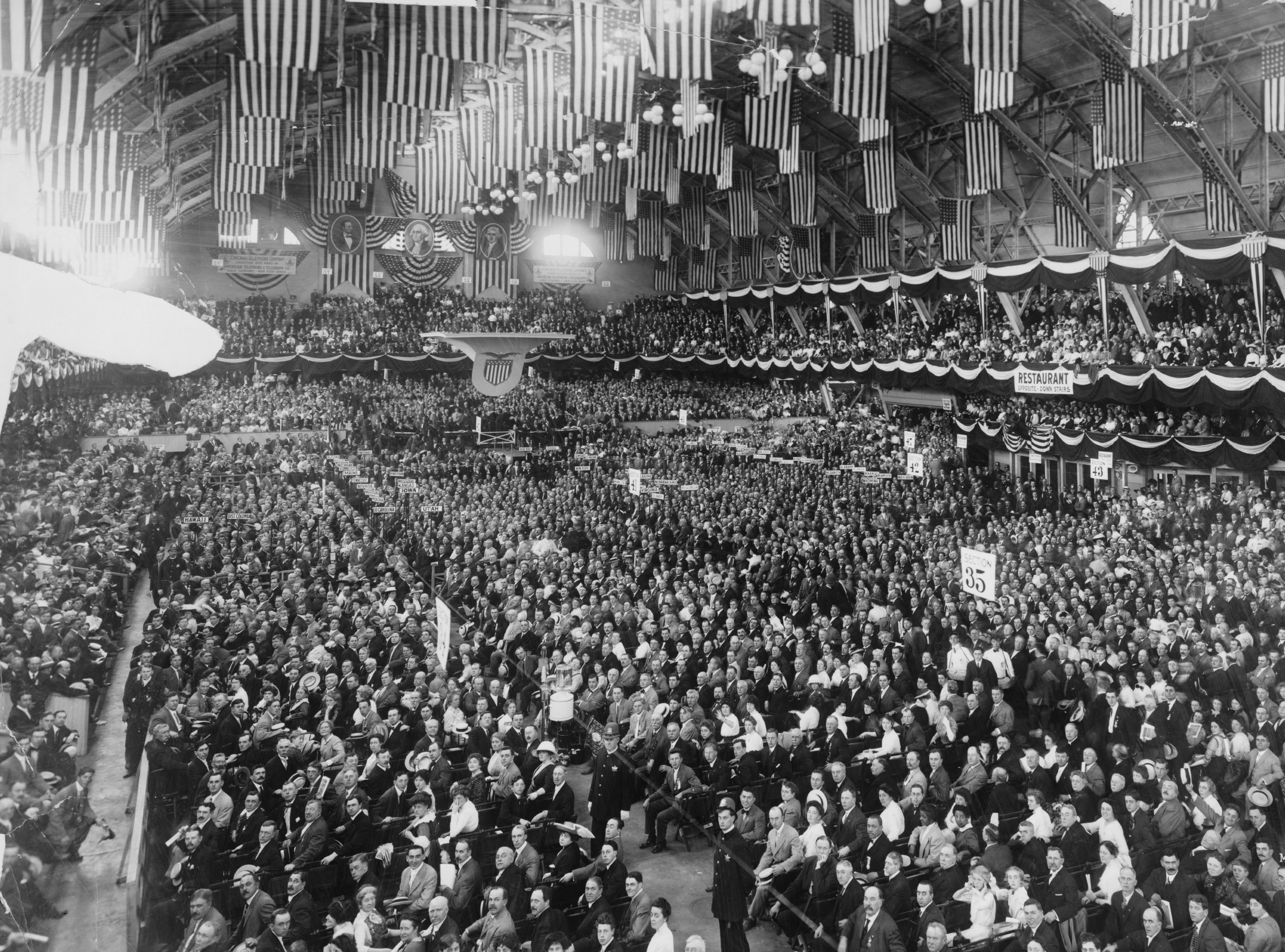|
Iredell Meares
Iredell Meares (December 15, 1856 - September 1931) was a lawyer, public speaker, and politician in North Carolina. His obituary describes him as one of lower Cape Fear's most colorful characters. Early life He was born in Raleigh, North Carolina into a prominent family. His family's finances were wrecked by the Civil War and father died in 1871. A Democrat, he became an independent, then a Republican, and ran for governor as a Progressive. He reportedly sent his co-counsel a poem in lieu of a fee. He served as deputy of customs in Wilmington. He testified on the proposed establishment of a Department of Education in Washington D.C. He was a lawyer for the Sentinels of the Republic. He was a Progressive Party candidate in the 1912 North Carolina gubernatorial election. Later in his career he worked in Washington D.C. He owned two Albert Rosenthal etchings, one of James Iredell. He was married to Josephine Meares. They had a daughter. He died September 1931 in Wilmington, N ... [...More Info...] [...Related Items...] OR: [Wikipedia] [Google] [Baidu] |
Iredell Meares
Iredell Meares (December 15, 1856 - September 1931) was a lawyer, public speaker, and politician in North Carolina. His obituary describes him as one of lower Cape Fear's most colorful characters. Early life He was born in Raleigh, North Carolina into a prominent family. His family's finances were wrecked by the Civil War and father died in 1871. A Democrat, he became an independent, then a Republican, and ran for governor as a Progressive. He reportedly sent his co-counsel a poem in lieu of a fee. He served as deputy of customs in Wilmington. He testified on the proposed establishment of a Department of Education in Washington D.C. He was a lawyer for the Sentinels of the Republic. He was a Progressive Party candidate in the 1912 North Carolina gubernatorial election. Later in his career he worked in Washington D.C. He owned two Albert Rosenthal etchings, one of James Iredell. He was married to Josephine Meares. They had a daughter. He died September 1931 in Wilmington, N ... [...More Info...] [...Related Items...] OR: [Wikipedia] [Google] [Baidu] |
Cape Fear (region)
Cape Fear is a coastal plain and Tidewater region of North Carolina centered about the city of Wilmington. The region takes its name from the adjacent Cape Fear headland, as does the Cape Fear River which flows through the region and empties into the Atlantic Ocean near the cape. Much of the region's populated areas are found along the Atlantic beaches and the Atlantic Intracoastal Waterway, while the rural areas are dominated by farms and swampland like that of the Green Swamp. The general area can be also identified by the titles "Lower Cape Fear", "Wilmington Metropolitan Area", "Southeastern North Carolina", and "Azalea Coast". The latter name is derived from the North Carolina Azalea Festival held annually in Wilmington. Municipalities in the area belong to the Cape Fear Council of Governments. The region is home to the Port of Wilmington, the busiest port in North Carolina, operated by the North Carolina State Ports Authority. It is also the location of Military Ocean ... [...More Info...] [...Related Items...] OR: [Wikipedia] [Google] [Baidu] |
Raleigh, North Carolina
Raleigh (; ) is the capital city of the state of North Carolina and the List of North Carolina county seats, seat of Wake County, North Carolina, Wake County in the United States. It is the List of municipalities in North Carolina, second-most populous city in North Carolina, after Charlotte, North Carolina, Charlotte. Raleigh is the tenth-most populous city in the Southeastern United States, Southeast, List of United States cities by population, the 41st-most populous city in the U.S., and the largest city of the Research Triangle metro area. Raleigh is known as the "City of Oaks" for its many oak, oak trees, which line the streets in the heart of the city. The city covers a land area of . The United States Census Bureau, U.S. Census Bureau counted the city's population as 474,069 in the 2020 United States census, 2020 census. It is one of the fastest-growing cities in the United States. The city of Raleigh is named after Sir Walter Raleigh, who established the lost Roanoke Co ... [...More Info...] [...Related Items...] OR: [Wikipedia] [Google] [Baidu] |
Sentinels Of The Republic
The Sentinels of the Republic was a national organization in the United States that opposed what it saw as federal encroachment on the rights of the States and of the individual. Politically right-wing, the group was highly active in the 1920s and 1930s, during which it worked against child labor legislation and the New Deal. Accusations of antisemitism and a decreasing relevance of its political agenda both served to weaken the organization, which ultimately disbanded in 1944. Origins and formation The Sentinels of the Republic was created as part of a surge in constitutionalism that occurred during the 1920s and 30s. During this period, historian Michael Kammen writes, constitutionalism "assumed a more central role in American culture than it ever had before," and resulted in "the efflorescence of intensely partisan organizations that promoted patriotic constitutionalism as an antidote to two dreaded nemeses, governmental centralization and socialism." In Massachusetts, on 22 S ... [...More Info...] [...Related Items...] OR: [Wikipedia] [Google] [Baidu] |
Progressive Party (United States, 1912–1920)
The Progressive Party was a third party in the United States formed in 1912 by former president Theodore Roosevelt after he lost the presidential nomination of the Republican Party to his former protégé rival, incumbent president William Howard Taft. The new party was known for taking advanced positions on progressive reforms and attracting leading national reformers. The party was also ideologically deeply connected with America's indigenous radical-liberal tradition. After the party's defeat in the 1912 presidential election, it went into rapid decline in elections until 1918, disappearing by 1920. The Progressive Party was popularly nicknamed the "Bull Moose Party" when Roosevelt boasted that he felt "strong as a bull moose" after losing the Republican nomination in June 1912 at the Chicago convention. As a member of the Republican Party, Roosevelt had served as president from 1901 to 1909, becoming increasingly progressive in the later years of his presidency. In ... [...More Info...] [...Related Items...] OR: [Wikipedia] [Google] [Baidu] |
1912 North Carolina Gubernatorial Election ...
The 1912 North Carolina gubernatorial election was held on November 5, 1912. Democratic nominee Locke Craig defeated Progressive nominee Iredell Meares with 61.35% of the vote. General election Candidates Major party candidates *Locke Craig, Democratic *Thomas Settle, Republican Other candidates *Iredell Meares, Progressive *H.E. Hodges, Socialist Results References {{1912 United States elections 1912 North Carolina Gubernatorial A governor is an politician, administrative leader and head of a polity or Region#Political_regions, political region, ranking under the Head of State, head of state and in some cases, such as governor-general, governors-general, as the head of ... [...More Info...] [...Related Items...] OR: [Wikipedia] [Google] [Baidu] |
Albert Rosenthal
Albert Rosenthal (January 30, 1863 – December 20, 1939) was an American portrait artist, printmaker, writer, and collector from Philadelphia. Early life Albert Rosenthal was born in Philadelphia on January 30, 1863, to Max Rosenthal. He studied at Central High School for three years. His father was an engraver and lithographer and he studied under him at the Pennsylvania Academy of the Fine Arts. He studied at the Académie Julian in Paris in 1880. He also studied at École des Beaux-Arts under Jean-Léon Gérôme. His first job was as an errand boy in the drug store owned by Charles Elmer Hires. Career Rosenthal was known for his portraits of Supreme Court of Pennsylvania and U.S. Supreme Court justices (including Melville Fuller and Edward Douglass White), Attorneys General of the United States and his collection of American drawings. He painted the members of the Constitutional Convention of 1787. He also copied original portraits of Americans and French in ... [...More Info...] [...Related Items...] OR: [Wikipedia] [Google] [Baidu] |
James Iredell
James Iredell (October 5, 1751 – October 20, 1799) was one of the first Justices of the Supreme Court of the United States. He was appointed by President George Washington and served from 1790 until his death in 1799. His son, James Iredell Jr., was a Governor of North Carolina. Early life James Iredell was born in Lewes, England, the oldest of five surviving children of Francis Iredell, a Bristol merchant and his wife, the former Margaret MucCulloh of Ireland. The failure of his father's business (and health) impelled James to emigrate to the Colonies in 1767 at the age of 17. Relatives assisted him in obtaining a position in the customs service as deputy collector, or comptroller, of the port of Edenton, North Carolina. While working at the customs house, Iredell read law under Samuel Johnston (later governor of North Carolina), began the practice of law and was admitted to the bar in 1771. The grandson of a clergyman, he was a devout Anglican throughout his life a ... [...More Info...] [...Related Items...] OR: [Wikipedia] [Google] [Baidu] |
Wilmington Massacre Of 1898
The Wilmington insurrection of 1898, also known as the Wilmington massacre of 1898 or the Wilmington coup of 1898, was a coup d'état and massacre carried out by white supremacists in Wilmington, North Carolina, United States, on Thursday, November 10, 1898. The white press in Wilmington originally described the event as a race riot caused by black people. Since the late 20th century and further study, the event has been characterized as a violent overthrow of a duly elected government by a group of white supremacists. It is the only such incident in the history of the United States. Multiple causes brought it about. The coup was the result of a group of the state's white Southern Democrats#1861–1933, Southern Democrats conspiring and leading a mob of 2,000 white men to overthrow the legitimately elected local Fusionism in North Carolina, Fusionist biracial government in Wilmington. They expelled opposition black and white political leaders from the city, destroyed the prope ... [...More Info...] [...Related Items...] OR: [Wikipedia] [Google] [Baidu] |
1856 Births
Events January–March * January 8 – Borax deposits are discovered in large quantities by John Veatch in California. * January 23 – American paddle steamer SS ''Pacific'' leaves Liverpool (England) for a transatlantic voyage on which she will be lost with all 186 on board. * January 24 – U.S. President Franklin Pierce declares the new Free-State Topeka government in "Bleeding Kansas" to be in rebellion. * January 26 – First Battle of Seattle: Marines from the suppress an indigenous uprising, in response to Governor Stevens' declaration of a "war of extermination" on Native communities. * January 29 ** The 223-mile North Carolina Railroad is completed from Goldsboro through Raleigh and Salisbury to Charlotte. ** Queen Victoria institutes the Victoria Cross as a British military decoration. * February ** The Tintic War breaks out in Utah. ** The National Dress Reform Association is founded in the United States to promote "rational" dress for ... [...More Info...] [...Related Items...] OR: [Wikipedia] [Google] [Baidu] |
1931 Deaths
Events January * January 2 – South Dakota native Ernest Lawrence invents the cyclotron, used to accelerate particles to study nuclear physics. * January 4 – German pilot Elly Beinhorn begins her flight to Africa. * January 22 – Sir Isaac Isaacs is sworn in as the first Australian-born Governor-General of Australia. * January 25 – Mohandas Gandhi is again released from imprisonment in India. * January 27 – Pierre Laval forms a government in France. February * February 4 – Soviet leader Joseph Stalin gives a speech calling for rapid industrialization, arguing that only strong industrialized countries will win wars, while "weak" nations are "beaten". Stalin states: "We are fifty or a hundred years behind the advanced countries. We must make good this distance in ten years. Either we do it, or they will crush us." The first five-year plan in the Soviet Union is intensified, for the industrialization and collectivization of agriculture. * February 10 – O ... [...More Info...] [...Related Items...] OR: [Wikipedia] [Google] [Baidu] |
North Carolina Lawyers
North is one of the four compass points or cardinal directions. It is the opposite of south and is perpendicular to east and west. ''North'' is a noun, adjective, or adverb indicating direction or geography. Etymology The word ''north'' is related to the Old High German ''nord'', both descending from the Proto-Indo-European unit *''ner-'', meaning "left; below" as north is to left when facing the rising sun. Similarly, the other cardinal directions are also related to the sun's position. The Latin word ''borealis'' comes from the Greek '' boreas'' "north wind, north", which, according to Ovid, was personified as the wind-god Boreas, the father of Calais and Zetes. ''Septentrionalis'' is from ''septentriones'', "the seven plow oxen", a name of ''Ursa Major''. The Greek ἀρκτικός (''arktikós'') is named for the same constellation, and is the source of the English word ''Arctic''. Other languages have other derivations. For example, in Lezgian, ''kefer'' can mean b ... [...More Info...] [...Related Items...] OR: [Wikipedia] [Google] [Baidu] |




.jpg)

